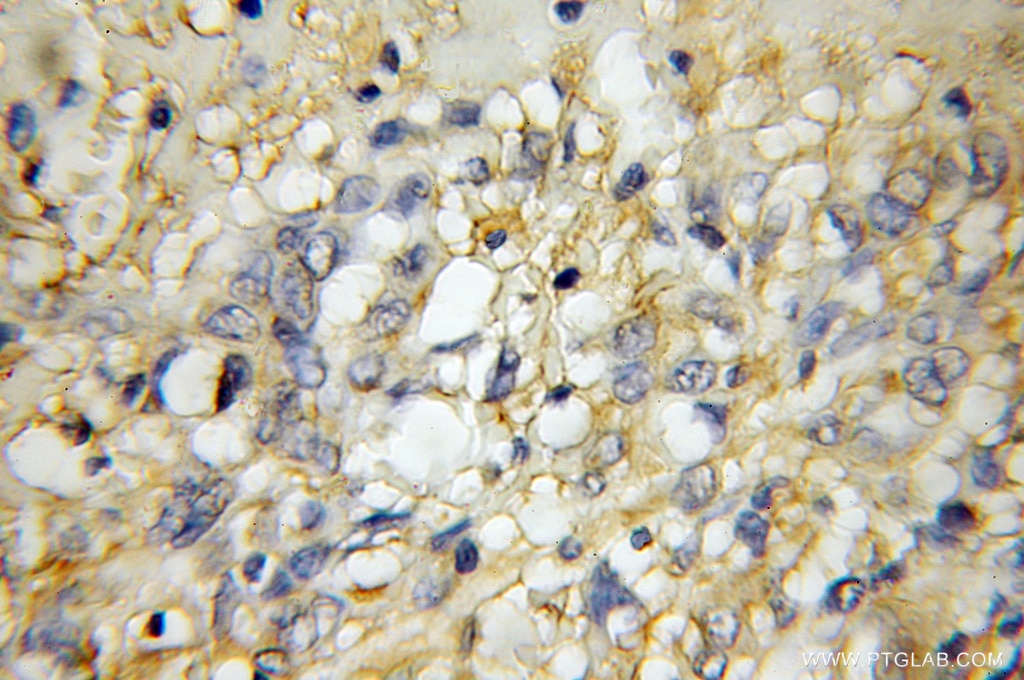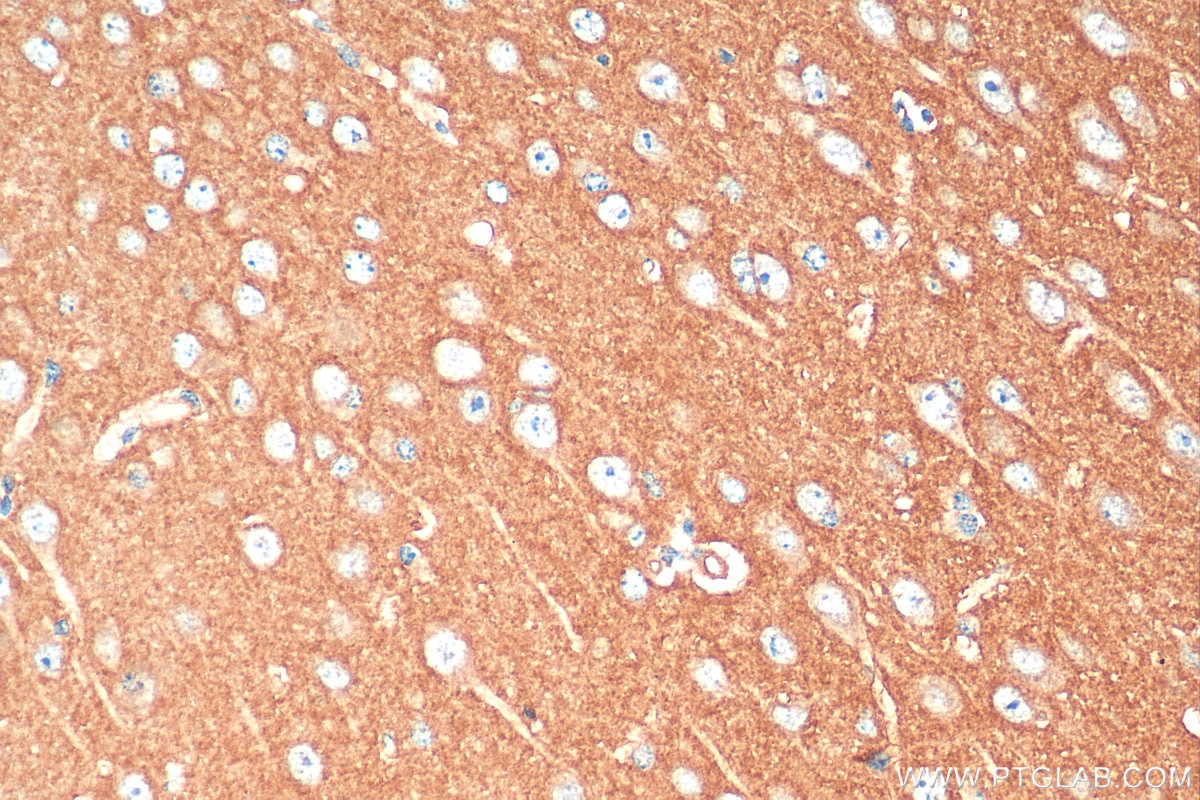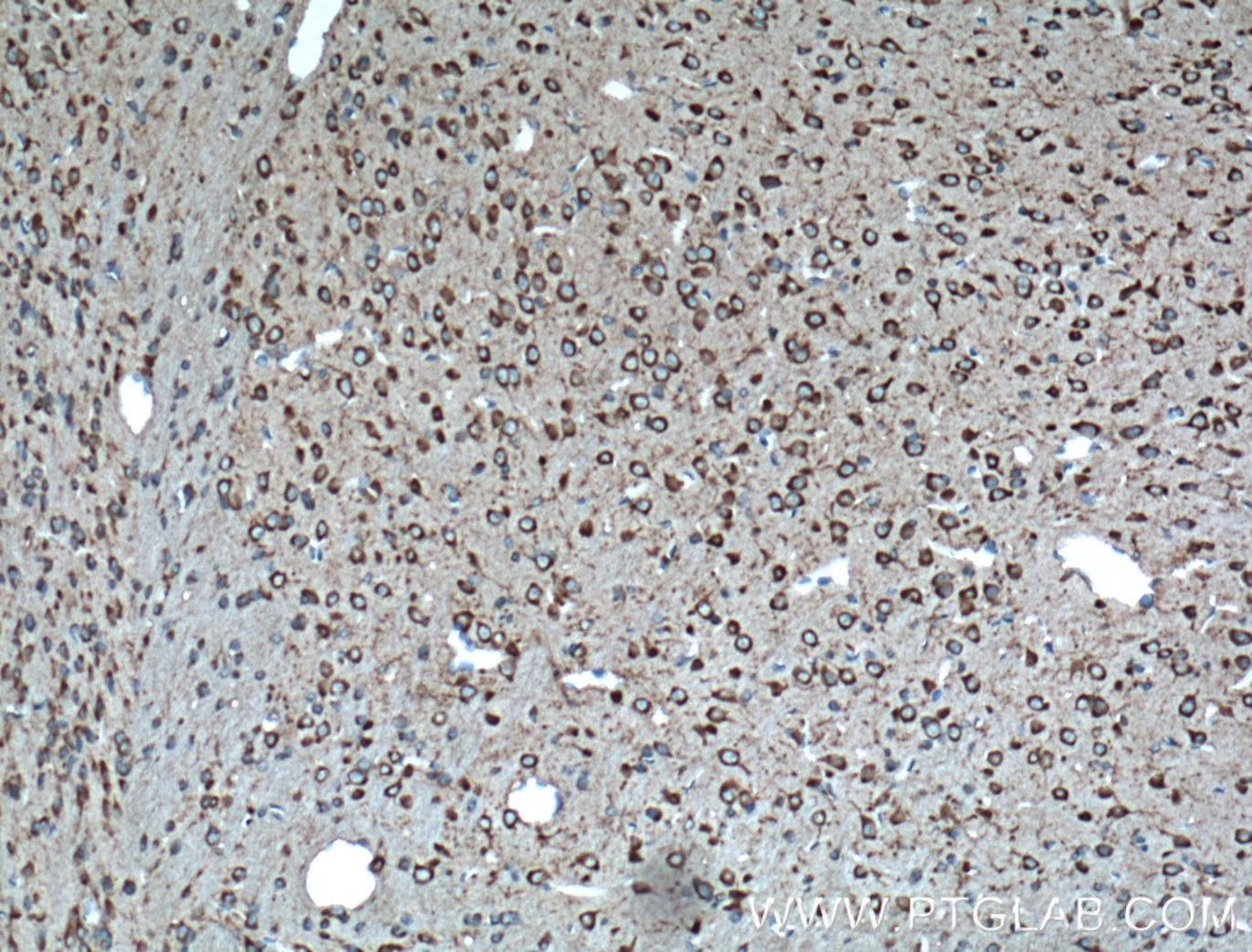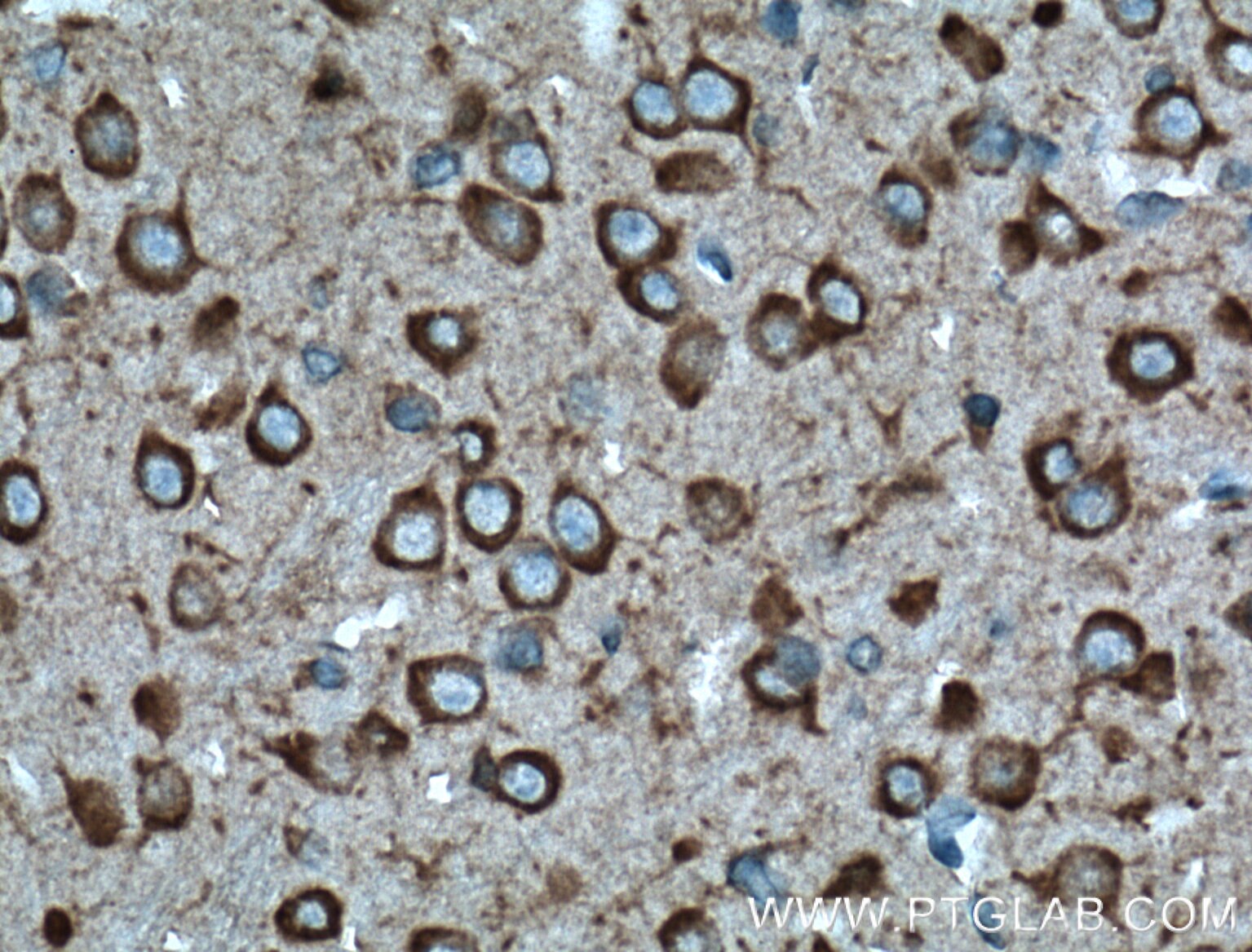- Phare
- Validé par KD/KO
Anticorps Polyclonal de lapin anti-GPR137
GPR137 Polyclonal Antibody for IHC, Indirect ELISA
Hôte / Isotype
Lapin / IgG
Réactivité testée
Humain, rat, souris
Applications
IHC, Indirect ELISA
Conjugaison
Non conjugué
N° de cat : 11929-1-PBS
Synonymes
Galerie de données de validation
Informations sur le produit
11929-1-PBS cible GPR137 dans les applications de IHC, Indirect ELISA et montre une réactivité avec des échantillons Humain, rat, souris
| Réactivité | Humain, rat, souris |
| Hôte / Isotype | Lapin / IgG |
| Clonalité | Polyclonal |
| Type | Anticorps |
| Immunogène | GPR137 Protéine recombinante Ag2611 |
| Nom complet | G protein-coupled receptor 137 |
| Masse moléculaire calculée | 396 aa, 44 kDa |
| Numéro d’acquisition GenBank | BC033920 |
| Symbole du gène | GPR137 |
| Identification du gène (NCBI) | 56834 |
| Conjugaison | Non conjugué |
| Forme | Liquide |
| Méthode de purification | Purification par affinité contre l'antigène |
| Tampon de stockage | PBS only |
| Conditions de stockage | Store at -80°C. 20ul contiennent 0,1% de BSA. |
Informations générales
G protein-coupled receptors (GPRs) are highly related to oncogenesis and cancer metastasis. G protein-coupled receptor 137 (GPR137) was initially reported as a novel orphan GPR about 10 years ago. GPR137 is ubiquitously expressed in the central nervous system (CNS), mainly in the hippocampus (PMID: 22025619). GPR137 is involved in the progression of human glioma, suggesting GPR137 as a potential oncogene of glioma cells (PMID: 24870220). Recent study shows that GPR137 plays an important role in colon cancer cell proliferation (PMID: 25301753).









